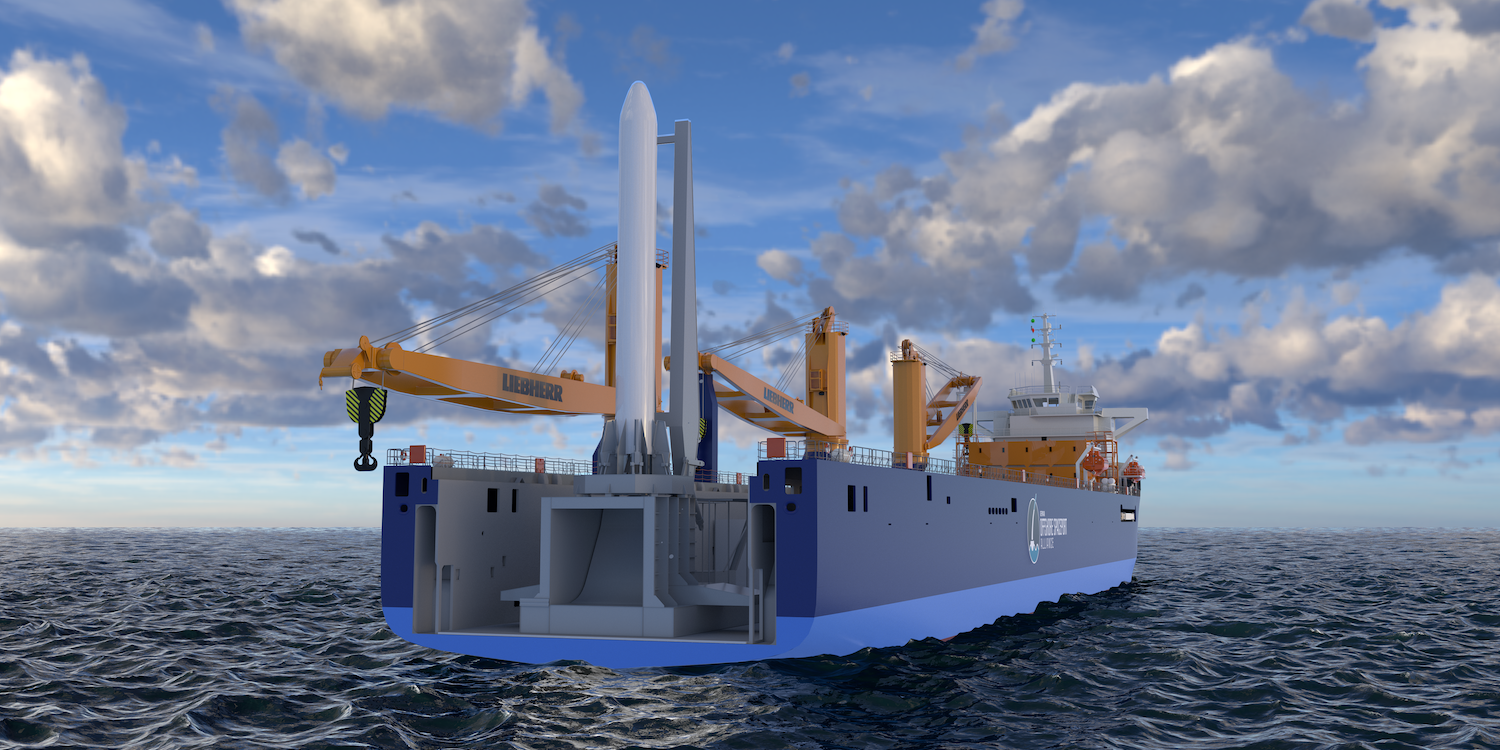The German Offshore Spaceport Alliance (GOSA) was formed in December 2020 as a joint effort between Tractebel DOC Offshore, MediaMobil, OHB, and Harren Shipping Services. The spaceport will utilize the 170-metre Combi Dock I ship and will be capable of hosting launchers with a mass of between 36 and 52 tonnes on a launchpad with a footprint of nine metres by nine metres. Bremen and Bremerhaven provide an optimal home port for the spaceport: Bremen is the German City of Space having a large and successful space community, which includes the whole value-added chain from the large system house to the supplier and also is well-linked with the excellent research institutes and the university. Bremerhaven is among the largest ports of Europe and made a name for itself with clever location concepts in offshore wind energy. A new spaceport in the heart of Europe also offers opportunities in terms of economic policy: the rapidly growing number of start-ups and small and medium-sized enterprises offering space-based products or solutions can tap into a new cluster in a market of the future. This can create a forward-looking, economic ecosystem in Germany that decisively strengthens Europe's sovereignty.
In April 2024, a rocket of the Dutch company T-Minus is scheduled to launch for the first time from a mobile launch platform of the "German-Offshore Spaceport Alliance" (GOSA) in the North Sea as a demo mission. The demo campaign will initially run for around two weeks. During this time, up to four rockets with a maximum length of seven meters and a flight altitude of up to 50 kilometers are planned to be launched. GOSA is currently working with various manufacturers of microlaunchers, including two German companies HyImpulse and Rocket Factory Ausburg, Skyrora from the United Kingdom and the Dutch company T-Minus who will all build different rockets up to 30 metres in size that will be able to carry satellites weighing between 400 and 1,200 kilograms.
The Vision
Germany profits from the boom of the New Space movement, a growing number of startups and small and medium-sized companies offering space-based solutions stimulates the space industry in Germany. A spaceport provides the historic opportunity for this growing New Space location to develop a cluster in a future market and thereby create an economic eco system, which spans everything from the manufacturer of the smallest screw to the complete application of the product.
The access to space for the institutional customer is only independently guaranteed, if the space port lies within the sovereign territory. For the New Space approach, to start as cost-efficiently and quickly as possible, a launching site in the center of the European continent is mandatory. Furthermore, it forms a stable and strategically relevant starting point for many institutional applications. Thereby we make a crucial commitment for securing the own space infrastructure.
By 2028 four times more satellites than in the past decade will be launched, 86% of which will come from the small and micro satellite segment. Apart from the mega constellations the number of smaller satellite swarms and unique missions will rise. The German and European space sector has the best technologic and economic requirements to participate in this growth, if the launch can be done cost-efficiently and without complicatedness. The offshore spaceport provides optimal conditions for this.
The Opportunities
Germany is the strongest national economy in Europe, the GDP is on the fourth place in the world. The value-added share of the German space industry in the GDP does not reflect the immense share space applications contribute to this result. Entire industries today depend on satellite-based navigation, Weather forecasting or satellite communication. The spaceport will catalyze the further development of many industrial space applications and will inspire further startups and companies from the domain of the applications.
The miniaturization and industrialization enable a cheaper and more attractive access to space-based solutions not only for commercial users, but small satellites are also the preferred platform for universities and research institutes. For the higher education and research location Germany the spaceport offers an optimal possibility to deploy small satellites for higher education and science in a timely and cost-efficient manner.
Germany is one of the most successful spaceflight nations of Europe, German space companies are among the best of the world. Although most of the German space industry is purely concerned with the institutional market, in contrast to the competitors from the USA, and this market is limited, German products are appreciated and in demand globally. The spaceport extends the portfolio of German space solutions with an essential infrastructure, which leverages the space sector on the next level of development.
Source: German OffShore Spaceport

